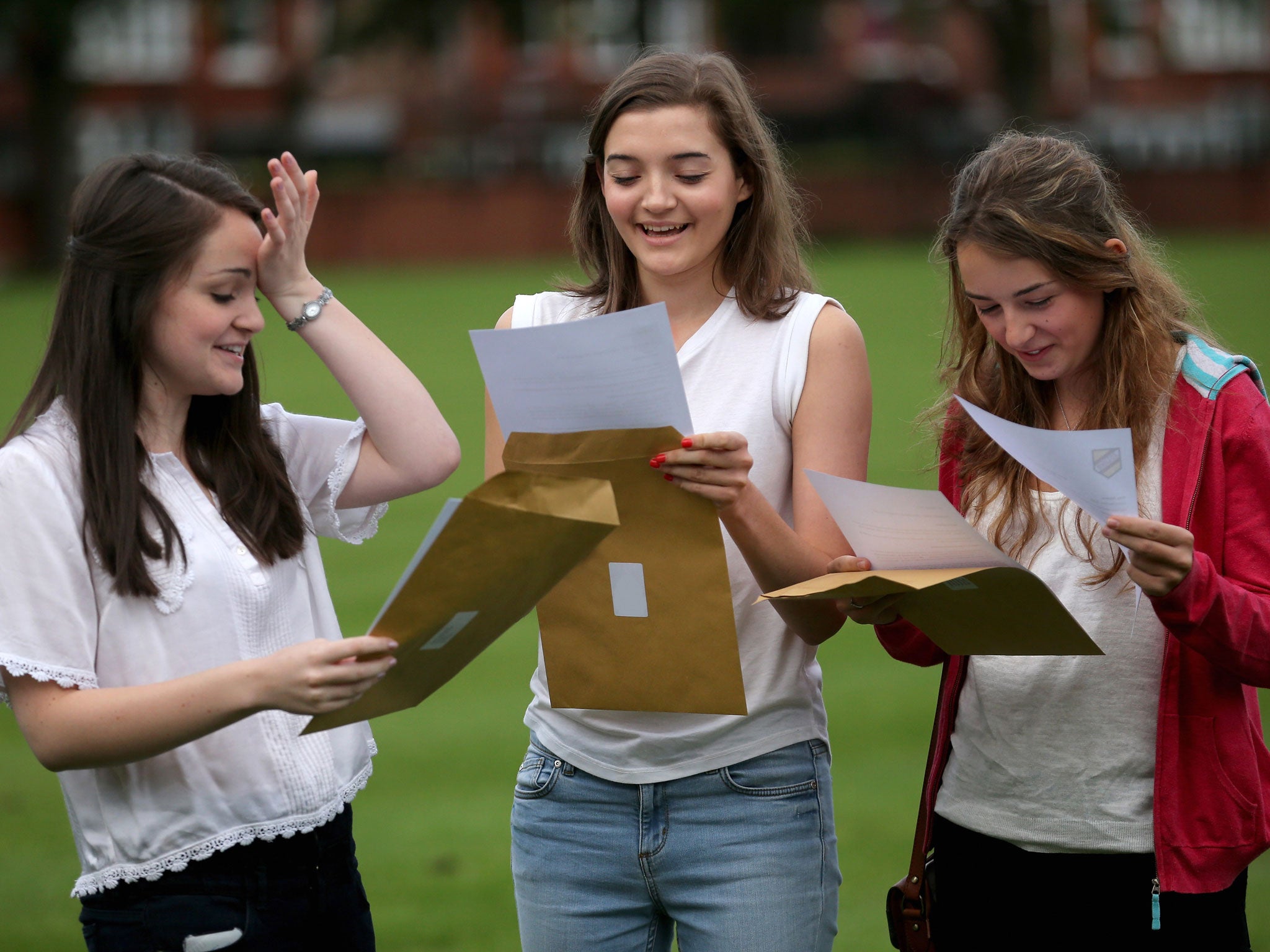Universities flash the cash in clearing war
First it was iPads and laptops. Now students are offered fee rebates as recruitment battle hots up

Your support helps us to tell the story
From reproductive rights to climate change to Big Tech, The Independent is on the ground when the story is developing. Whether it's investigating the financials of Elon Musk's pro-Trump PAC or producing our latest documentary, 'The A Word', which shines a light on the American women fighting for reproductive rights, we know how important it is to parse out the facts from the messaging.
At such a critical moment in US history, we need reporters on the ground. Your donation allows us to keep sending journalists to speak to both sides of the story.
The Independent is trusted by Americans across the entire political spectrum. And unlike many other quality news outlets, we choose not to lock Americans out of our reporting and analysis with paywalls. We believe quality journalism should be available to everyone, paid for by those who can afford it.
Your support makes all the difference.Cash incentives to students are being stepped up as universities go to war with each other to fill places this autumn, an investigation by The Independent on Sunday has found.
Some are even offering rewards to students who fail to meet the Government's criteria of at least one A grade and two Bs for allowing universities to increase the number of places they offer.
Last week it emerged some top universities were offering mini iPads and laptops to lure students onto courses. At Coventry, students applying to the computing and engineering department with three B-grade passes are being offered an incentive of £1,000 towards fees or £1,500 towards the cost of university accommodation. Newman University in Birmingham is also extending a £10,000 grant available to students over their three-year study period to those with a minimum of three B-grade passes on its non-teacher training courses. It said it has also received an unusually high number of applications from students with A or B grade passes.
The growth in incentives comes as the recruitment war between universities intensifies, with many of the country's leading universities taking advantage of the Government's new policy to increase their intake. Exeter University is recruiting 600 extra students this year while Northampton said it was taking up the Government's offer in order to expand the number of places it was offering through clearing.
Around 80 universities responded to an IoS investigation into student admissions this year, the first of the new policy. It was being predicted that the expansion of elite universities' numbers could mean others struggle to fill their places.
The universities minister David Willetts said: "There will be some that fill up quickly and others who don't do so well. That's how an open, more flexible system works."
Other incentives offered include a fee waiver by Goldsmiths, University of London, for the 10 most exceptional students from its local borough of Lewisham. Cash incentives of up to £2,000 a year were also being offered by Salford, Bangor, Bradford and Glasgow.
This year's A-level results saw a slight drop in the number of A* and A grades awarded, down by 0.3 percentage points to 26.3 per cent. However, the percentage of students achieving A* to B-grade passes rose from 52.6 per cent to 52.9 per cent.
City University in London is just one institution that, as a result, was encouraging those who exceeded grades for a firm offer at other universities to contact them and "adjust" to their own equivalent course.
The subjects still on offer differed from university to university: Coventry and Pearson College, the latter run by the FTSE company and granted degree-awarding powers, reported places left on their business and economics degrees, as did the for-profit private university BPP. Suffolk, the University of West England and Bangor had spaces in creative arts, the humanities, social science and business subjects.
Healthcare courses were popular with Bradford, and South Bank University in London closed many of its nursing courses by Thursday morning. Manchester University, which whittled down its remaining vacancies from 300 to 100 by Friday lunchtime, said most unfilled places were on modern language courses.
The New College of the Humanities, the university in London whose master is the philosopher Professor AC Grayling, and which charges fees of £18,000 a year, reported vacancies through clearing on all its courses but pointed out that, as a private university, it was not restricted by government rules on student numbers.
Some of those universities left in clearing said they had high minimum qualifications for their remaining places and that only students with at least one B-grade and two A-grade passes should apply.
At least six of the 24 Russell Group of elite universities – Oxford, Cambridge, UCL, Bristol, Imperial College and the London School of Economics – are not involved in clearing because all of their places are filled.
There are still spaces available to students with lesser qualifications: Bedfordshire and Bath Spa were among those universities willing to accept three D-grade passes, but which said that they would judge prospective students on a case-by-case basis.
Additional research by Miranda Dobson and Hayley Parr
Join our commenting forum
Join thought-provoking conversations, follow other Independent readers and see their replies
0Comments